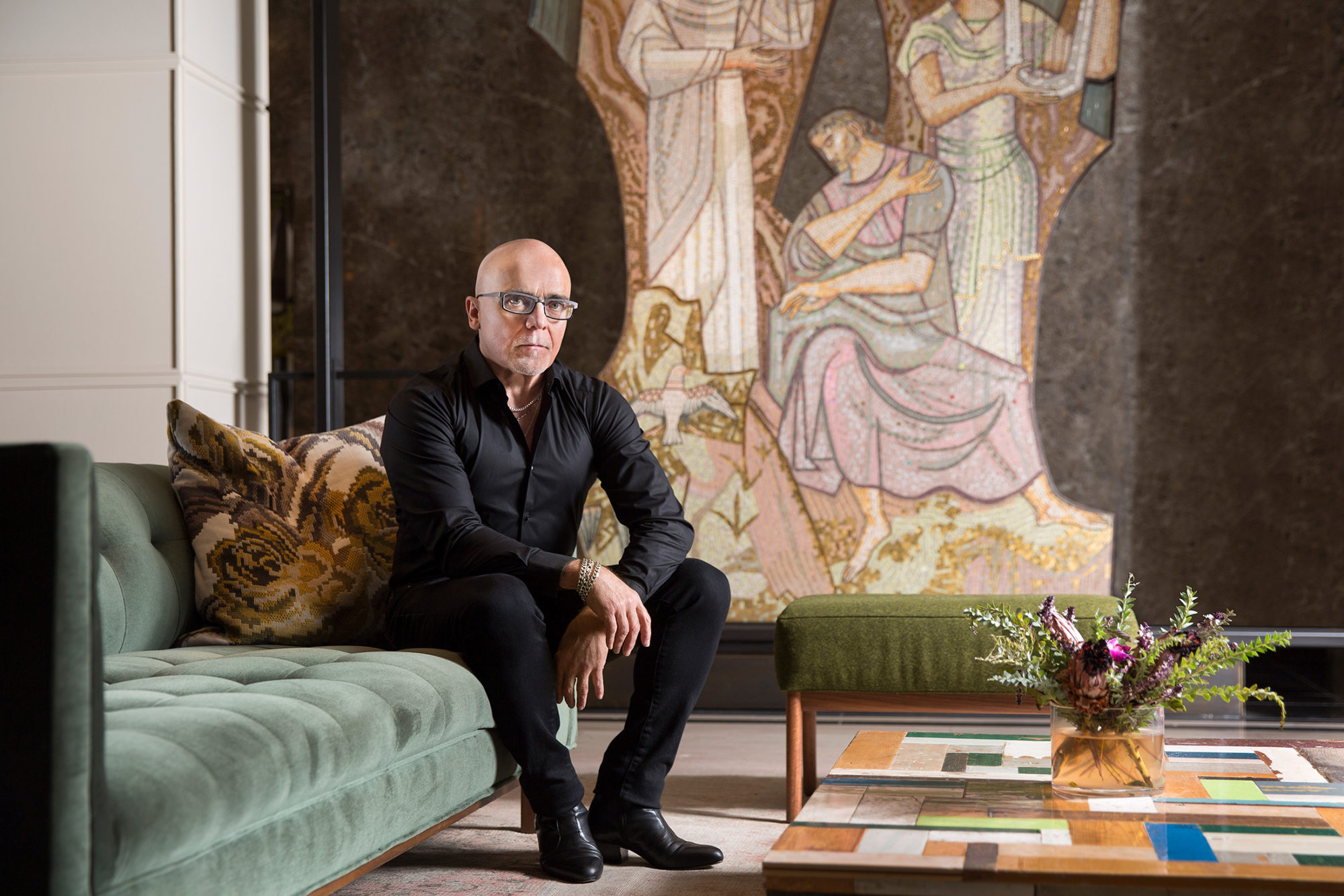I’m told you never wear a tie. In P.G. Wodehouse’s book Very Good, Jeeves, a sagacious valet gives his employer, Bertie, some advice: “There is no time, sir, at which ties do not matter.” It seems you disagree?
I don’t agree, and I don’t feel unfortunate for it. In Dallas, wearing a tie seems absurd to me.
So the myth of the “power tie” is just that: a myth?
If that’s where your power comes from, you should probably be asking yourself some questions.
What else do you consider to be a myth about power?
Real power is not a position of authority. I think the org chart that says power resides at the top is not accurate. The most powerful person in the room should be the smartest.
How did you come to run Headington Companies? Take us down your path.
After graduate school, I thought I’d be a sports or music representative. I’ve always preferred right-brain activities. The first job I was offered was with CBS Records. I didn’t take it. Instead, I accepted a job with a banking company and spent four years overseas in Singapore and London. Then I started working in the energy business in a financial context in Los Angeles. I had been looking to open an office in Dallas to be closer to the oil when I met Tim Headington. He became a client for four years, and then I joined his company. I’ve been there ever since.
Let’s shift from crude. How would you characterize Headington’s real estate investments? Long-term or short-term?
Long-term. We don’t flip buildings
How did you—or y’all if you prefer—move what was a fairly traditional energy company into real estate?
When I started at Headington in 1997, we were primarily an oil and gas company. We were very successful in that sphere, and we decided there were opportunities to expand, and to deploy some liquidity at the same time. Now the primary focus is in urban development and real estate investment.
Under your leadership, the company has redeveloped Dallas’s Main Street and brought in fashion retail. You often work with artists on big commissions, notably the work in the sculpture garden at the Joule Hotel, which Headington owns. All fun stuff. What’s the goal?
Our goal with all these elements of the Main Street area is to create experiences that don’t exist in a shopping mall. The original Neiman Marcus is right near us, but we feel it has a game of its own. We want to create a destination.
So, you don’t wear ties, but it seems you do wear a lot of hats: real estate, hospitality, restaurants, crude. How do you run a company with such a diverse portfolio?
While those sound like very disparate businesses, there are certain commonalities. Real estate and oil and gas are tangible assets that are driven by location. You tend to concentrate around specific areas, and you’re either successful or not. I come from a finance background, which doesn’t limit what I can do like, say, geology does. It’s a more transferable skill.
How do you handle controversy, like the demolition of historic buildings to develop your projects?
Tim Headington is universally liked in Dallas. He’s a gentleman and not litigious or aggressive. We have won many awards for saving historic buildings and artworks that would otherwise have been completely trashed. In those situations in which we have been forced to destroy buildings, we’ve spent a lot of money to make sure there’s no other way around it. The press, in some cases, tends to galvanize mob-like groups who aren’t really interested in the reality of the situation. They’re interested in bemoaning the loss of a building. Meanwhile, buildings sit vacant. It’s demolition by neglect. But there’s nothing you can say to get those people off that track. It’s way too sensational. We just let it run its course and endure the barbs.
Are people in Dallas prone to falling into a “nostalgia trap”? Does a building’s age equate to it being indispensable? This is a thorny subject for most developers.
It’s a fairly small group. Whether it’s a predisposition or just nostalgia, they’re pretty vocal. Some people use the age of a building and who’s behind the development to further their own agenda. I have no problem with that at all. But you can’t wait while a building is ignored and looking awful.
Nostalgia has its place. Like neckties.
Absolutely. Neither should be a noose.

